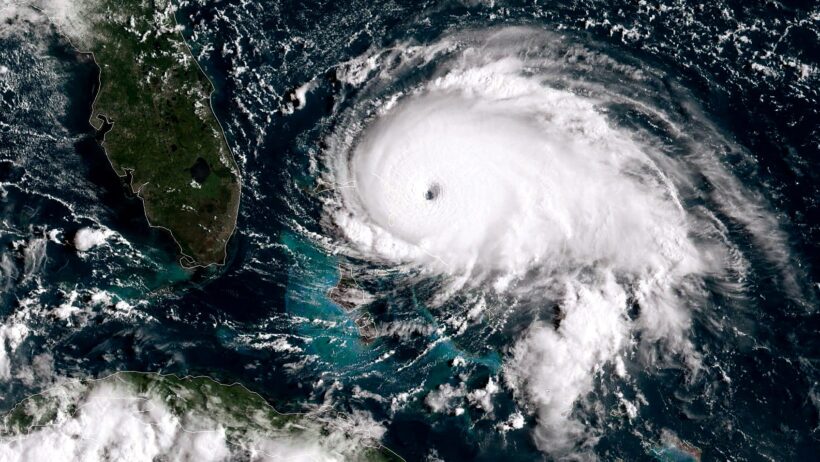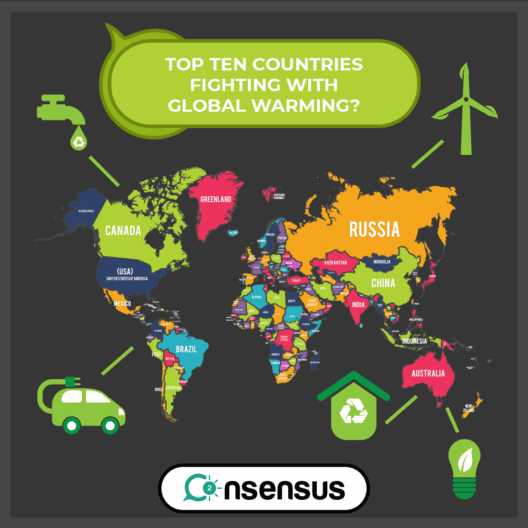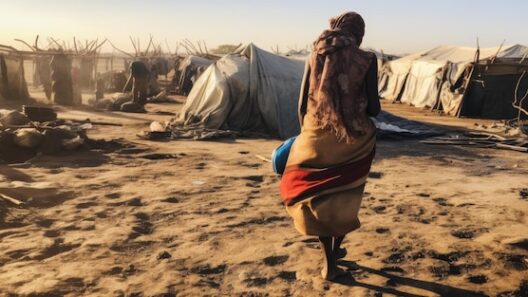Hurricanes are a potent symbol of nature’s wrath, capable of wreaking havoc on human settlements, ecosystems, and economies. Yet, beneath their swirling clouds and concentrated winds lies a more profound discourse about climate change and its implications. With the increasing frequency and intensity of these storms, a question emerges: do hurricanes make people more likely to believe in global warming? This inquiry not only spurs curiosity but also evokes a need for a deeper understanding of the relationship between extreme weather events and public perception of climate science.
Historically, significant hurricanes have left indelible marks on communities, epitomizing a sudden confrontation with nature’s ferocity. Each storm becomes a crucible, testing both infrastructure and resilience. The devastation wrought by hurricanes such as Katrina, Sandy, and Harvey has given rise to a collective memory that emphasizes human vulnerability in the face of natural disasters. Consequently, events of such magnitude allow individuals to connect the dots between severe weather phenomena and broader climatic shifts. This correlation may provoke a reassessment of long-held beliefs or apathy toward the scientific consensus on global warming.
The phenomenon known as the “availability heuristic,” a cognitive bias where people evaluate the probability of events based on their immediate memories, plays a crucial role in shaping public perception. When a catastrophic hurricane occurs, its vivid imagery and personal impact can overwhelm more abstract discussions about climate change. Citizens recall the devastation in compelling detail—damaged homes, dislocated families, and overwhelmed emergency services. These visceral memories convince many that climate change is not an abstract concept but rather an immediate existential reality. Hence, hurricanes often serve as watershed moments, shifting public opinion and intensifying discussions about climate accountability.
The media further amplifies this discourse. Headlines following significant hurricanes often contain phrases like “climate crisis” or “climate emergency,” linking these catastrophic events with ongoing debates about ecological stewardship. News outlets pivot quickly to reporting scientific analyses that attribute the changing dynamics of hurricane behavior—like increased wind speeds and heightened rainfall—to climate change. This editorial agenda both informs and influences public sentiment, establishing a narrative that frames these storms within the broader context of a warming planet. As individuals absorb this content, skepticism about climate science diminishes, replaced by an emerging consensus that pragmatic action is required.
Moreover, individuals engaging with their communities following a hurricane may ignite discussions centered around climate resilience and environmental policies. Community forums become fertile ground for dialogue, fostering public discourse that encompasses both local recovery efforts and broader climate actions. Rebuilding after such disasters often provides an opportunity to incorporate sustainable practices into recovery plans, further promoting awareness about climate change. This ideal convergence of necessity and awareness cultivates a community-led acknowledgment that aligns with the realities of global warming and the urgent need for mitigation.
Yet, not all reactions to hurricanes align with a belief in climate change. While emotional responses spike in the aftermath of destruction, the concept of confirmation bias may lead some individuals to rationalize these extreme weather events through narrow lenses, attributing them solely to natural cycles or unrelated occurrences. This deflection highlights the complexity of human psychology in accepting scientific truths, illustrating how deeply rooted socio-economic factors and ideological beliefs can supersede scientific evidence.
In examining the interplay between hurricanes and climate belief, the concept of effective communication emerges as paramount. Scientists, environmentalists, and policymakers must engage in transparent dialogues that demystify the science informing climate change. The efficacy of communication can be augmented by using local narratives and relatable experiences that resonate with the affected populace. Crafting stories that interweave personal stories post-hurricane with empirical data can stimulate a more profound connection, ensuring that socio-political constructs do not overshadow the urgency of climate action.
The merging of personal anecdotes with scientific data—from increased storm severity to statistics about rising sea levels—can foster an environment conducive to understanding. To encapsulate the essence of the change in perspective, it becomes crucial to highlight positive engagement strategies while recognizing the overwhelming sense of loss triggered by hurricanes. This dichotomy of hope and despair exists in an ever-thrumming heartbeat; each storm stirs emotions while simultaneously galvanizing action toward more sustainable policies.
The global climate crisis is already a tangible reality, and hurricanes act as critical catalysts for collective action. The devastation reminders of climate change compel citizens toward advocacy and resilience, igniting movements demanding accountability from both governmental entities and corporations. In a time where environmental degradation can feel insurmountable, hurricanes present a critical juncture to demand reform. They make the abstract wholly tangible, yielding an imperative for sustainable practices that could alter the trajectory of future storms.
In conclusion, hurricanes serve as more than just meteorological events; they symbolize humanity’s precarious relationship with the climate system. The intricate dance between devastation and revelation enhances awareness of global warming. While not everyone may emerge from such catastrophes with an intensified belief in climate science, the potential for transformation exists in every storm. Emotional and cognitive responses to these potent natural events have the power to galvanize communities, thereby nurturing a more profound commitment to combating climate change. As society grapples with the imprint of these hurricanes, understanding the nexus between extreme weather and public belief opens a pathway to proactive climate engagement.






